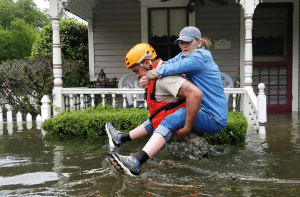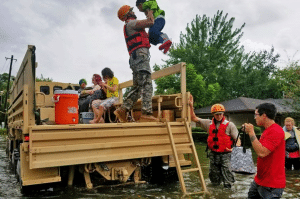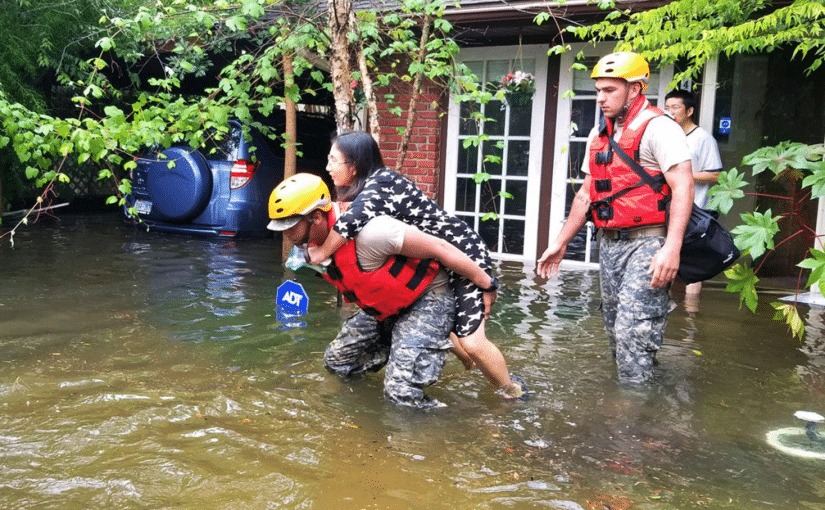by Nick Taylor
The heartbreaking scenes of Texas underwater and the long recovery people face prompt us to reach for our checkbooks to do what we can to help. National and local charities will have their hands full for months as rescue shifts to recovery

But how do you know that your money will go where it’s needed?
Even the American Red Cross, the go-to charity when disasters like Hurricane Harvey strike and displace thousands, was called out in an editorial in Wednesday’s New York Times.
The Times questioned the Red Cross for a lack of transparency about how it spends donations: how much goes to public relations, for example, and how much to assist the homeless stuck in shelters.
The American Red Cross does good work and we want to encourage people to donate. But like the Times, we think they need to tell us more about where the money goes. Sandra Bullock put her money and faith in the American Red Cross with a $1 million donation.
Pop-up “charities” present thornier problems and a lot of us fall into that briar patch and get ripped off. New York State Attorney General Eric Schneiderman encouraged New Yorkers to support relief efforts along the Texas coast, but he also cautioned about scammers: “Unfortunately, there are always some who attempt to take advantage of a tragedy to line their own pockets . . .”
So how do we know?
Beware of robocallers and telemarketers
First of all, watch out for robocallers and telemarketers. Professional money raisers make these calls and you need to ask them some questions before you do anything else.
1. Most states require charities to register to make sure they do legitimate fundraising.
a. Ask if the charity is registered with your state’s charities bureau. This takes you to New York’s charities bureau.
b. Ask how much of the money goes to the charity.
c. Ask how much the caller, or the caller’s organization, gets paid.
This does seem like a lot of trouble to do something good. But taking a few precautions can help to make the most of your contribution.
- Ignore spam emails
- Legitimate charities don’t usually send unsolicited spam emails,
- Use your good common-sense judgment that helps you avoid other scams.
- Don’t give cash.
- Don’t give credit or debit card information
- Don’t give personal information over the telephone or by text message.
But People And Legitimate Charities Need Help

We made a list of charities with good reputations.
The AARP Foundation created the Help Victims of Hurricane Harvey Fund will match donations up to $1 million.
The Hurricane Harvey Relief Fund set up by Houston Mayor Sylvester Turner and administered by the Greater Houston Community Foundation helps out in a lot of ways.
Houston Rockets point guard James Harden stood with Mayor Turner and announced that he would donate $1 million to relief charities. His boss, Houston Rockets owner Leslie Alexander pledged $10 million to Mayor Turner’s fund.
The United Way of Houston received $1 million from Leonardo DiCaprio, but it needs more money to help people in the recovery.
The L.G.B.T.Q. Disaster Relief Fund run by the Montrose Center also needs help.
Americares provides medicine and supplies to survivors.
Catholic Charities provides food, clothing, shelter and support services to those from all religious backgrounds.
If you live in Texas, the City of Houston Emergency Operations Center posted a list of places where you can drop off donations.
Houston Food Bank and the Food Bank of Corpus Christi need donations. The South Texas Blood and Tissue Center reports a critical shortage. It extended hours in all of its San Antonio-area donor rooms.
The Texas Diaper Bank in San Antonio needs diapers and wipes. You can drop them off or mail them to 5415 Bandera Road, Suite 504, San Antonio, Tex., 78238.
To help animals:
Houston Society for the Prevention of Cruelty to Animals
How to check to find a legitimate charity:
Look at the charity’s website and check:
Wise Giving Alliance of the Better Business Bureau
If a fake charity tries to rip you off, let your state authorities know. In New York, the attorney general’s office wants to investigate these complaints.




